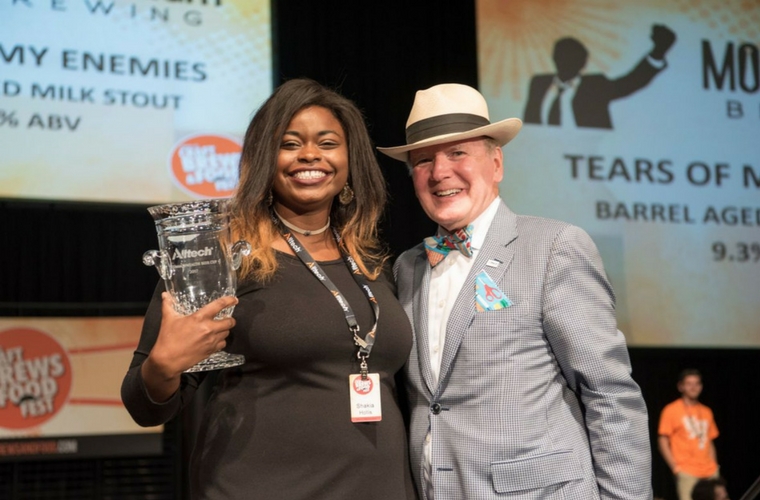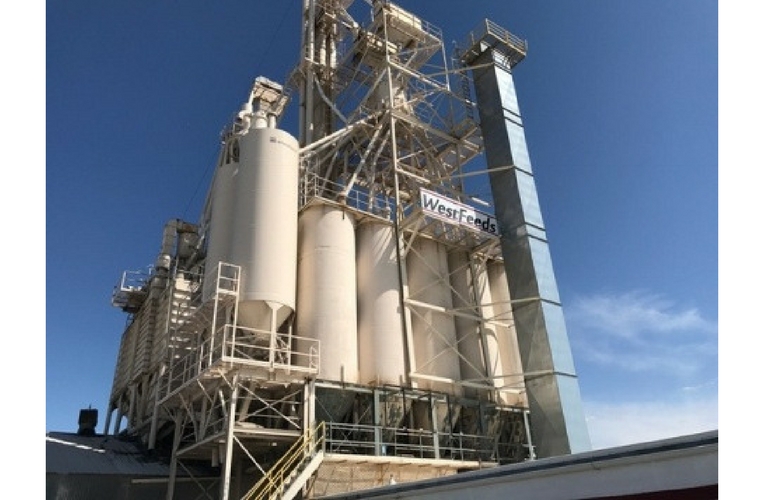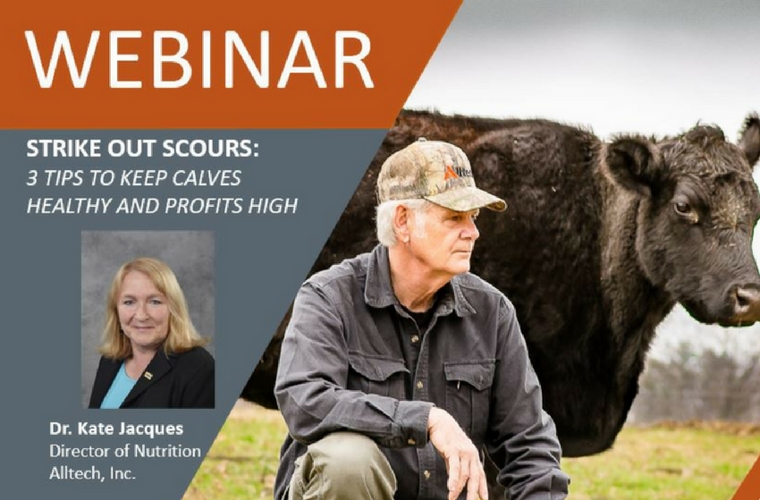Tom: Technological innovations have the ability to transform every link in the food chain, from seed to fork. We're joined by the author of those words, Alltech's chief innovation officer, Aidan Connolly, to talk about disruption and the accelerating pace of change. Thank you for being with us.
Aidan: Thank you.
Tom: “Disrupting the Disruptors” is the theme of this conference. Sounds a little bit like chaos, or are we interpreting that too literally?
Aidan: Well, you have to remember that although Alltech has become a very large organization employing over 5,000 people, we're still led by an entrepreneur. We're still led by the man, Dr. Pearse Lyons, who created and started the company, and he very much enjoys disrupting things. If you work for Alltech, you would know that. So the conference reflects the fact that he sees the world changing tremendously and that conventional thinking is not going to solve the problems that we are facing. We need to think differently about how we confront those issues, and if we do so, in the right way, we'd profit from our solutions.
What is disruption?
Tom: That word, “disruption,” is becoming something of a buzzword, and the originator of the theory has complained that the term is frequently used loosely to invoke the concept of innovation in support of whatever it is that person wishes to do. What, in your view, defines meaningful disruption?
Aidan: Well, it is something that you hear a lot of discussion about, and, obviously, you hear people from universities, people, academics, talking about it. But practically, I feel that innovation is all about doing the same thing better, whereas disruption is about doing things that make the way we do it today obsolete, and that obsolescence of the old ways of doing things is overused as a phrase, there's no question about it. We do hear people talking about things that are fairly conventional and how they're going to disrupt them, but we've seen huge disruption in all markets in the last three to five years. We think of the Uber model disrupting the way that we get moved from place to place, we think of the Netflix way of disrupting the model of how we get our movies, and you look at businesses that are really struggling to cope with the level of disruption of the scene, in particular, in our area, areas such as the food business, grocery stores, shopping malls that are empty, et cetera. So the level of disruption that we're seeing just requires us all in business to think differently about what we do and to really prepare for that business is not going to be the same as — it's not going to be as usual.
Tom: The pace of disruption today seems to have really accelerated. Won't something soon come along and disrupt your disruptor?
Aidan: Of course. And sometimes you feel disruption is like being on a conveyor belt. You're walking along, and just about the point that you get to one spot, you have to keep on walking because, if not, you start being pulled back. So there is no question that the level of change in society no longer allows you to come up with a new business model or idea and expect to get away with maintaining that for 10 or 15 years. You have to be on a continuous disruptive innovation pathway.
What I would say is that this perhaps is not as different as we think. We did for 200,000 years maintain pretty much a hunter-gatherer existence. We started farming about 10,000 years ago. That led to the development of cities and civilization and the time to think and innovation and art and all of the creative stuff that we're doing today. We have to assume that although we're seeing acceleration, which seemed mind-boggling in the last 10 years, that's going to continue. It might even accelerate.
Investing in disruptive ideas
Tom: Do investors in disruptive technologies or innovations need an iron stomach? Do they need to be pretty tolerant of risks?
Aidan: I think a lot of people use the phrase “I'm looking to invest in a unicorn, I'm looking for the unicorn, and I'm trying to figure out what a unicorn is.” But, of course, the unicorn, in their language, is this one business opportunity that you invest $10,000, $100,000 and magically, over a number of years, with the insight that they have to create businesses worth $100 million or $1 billion. The reality is, there are very few of those out there, and, of course, they are well-reported in the newspapers and in the media because that is what people are excited by.
I think if I'm an investor, I have to assume, as we always do, that we're going to have some successes, we're going to have some failures and we're going to have a loss in the middle.
And make sure that you maintain a portfolio approach to how you invest. So would I invest $10,000 in one project, or would it be better investing $1,000 in 10? I would feel the 10 is always the better way to go.
Yes, there are people out there with unique insights into where the future of the world is going to go, but the vast majority of us are not that lucky. And as such, we have to embrace what we see as the opportunities but also be prepared to spread our risk.
Digital technologies that will transform how we farm
Tom: In a recent article, you identified eight disruptive digital technologies with the power to transform agriculture. Which technologies made that list?
Aidan: I hope I can remember all eight now off the top of my mind, but I remember we have hardware solutions, such as drones and robots, sensors. We have the software applications of virtual reality, enhanced reality, artificial intelligence. Of course, we think a lot about the internet of things, bringing all of these together. From my perspective, all of these have tremendous opportunities to change the way in which business is done — all types of business — but the gap between where we are today and where we could be in food and agriculture is even larger.
So, from that perspective, I think that the gains can be much greater. You take a technology such as blockchain, which most of your listeners probably will not know what blockchain is. It's a little bit like bitcoin to allow you to have transparency in a system where you don't actually know who manufactures, who transforms or changes it, who packages it and who delivers it. The food system is a classic example of that. But you need that transparency to make sure that if there's a food scare, if there's a requirement for going back and finding where something bad happened, you can do so.
So blockchain is another transformation of technology. But, from my perspective, all of these eight areas all can transform food and agriculture. Some of them are closer to being implemented. For example, robots we already see being used on farms to help milk cows, sensors to detect the water content of soils so we can irrigate better. But then others, maybe like virtual reality, are further away, will require larger investments, and as of yet, we're looking to the future, not looking at today.
Tom: Among them, is there one or are there some that you find really compelling?
Aidan: I think people talk a lot about the internet of things, and that clearly is the central point of all of this. As in feedback from devices from the information you're collecting, bringing that back to your systems, to your computers and being able to analyze and understand what you're seeing.
But fundamentally, I think artificial intelligence is the one I would go for. That is the one that I think is the most transformative, the most disruptive and the one I'm most excited by.
How should businesses deal with digital disruption?
Tom: Borrowing from a question that you've raised, given that artificial intelligence, or AI, has the potential to revolutionize many areas of a company's operations, including their decision-making processes and their budgeting abilities, how best for an organization to invest in and leverage AI?
Aidan: That's a really good question, and obviously I posed it myself in the article we published on alltech.com and on my LinkedIn page. I think you have to be extremely hard-nosed about really understanding what the technology is and who's behind it. And, of course, for most of us, we don't feel comfortable asking some of these writing algorithms or mathematical formulae, "Now, how do I use this? What does it do?" But it has the ability to transform life and transform, in particular, work life. So we really have to dig into it, and the classic questions exist of “What is it going to do for me and for my business, my customers? How is this going to help me make more efficient or better or do so at a lower cost?” Examples of where it's being used today, that's clearly something that is very, very important. So while I wouldn't necessarily focus on existing sales, I'd like to look at existing uses and applications.
I think, while a lot of us feel very uncomfortable with trying to understand technology, I don't see any aspect of business today which will not be affected by it. So I think it's kind of important for us all to read as much as we can, research these areas. There are tremendous articles online on the internet that you can read. And obviously, don't rely on one. Read many of them. But I've also recently formed a kitchen cabinet of friends who I know I can call on who have the time and the interest to understand this better than me, who can give me very good advice as to whether, from an Alltech perspective and/or my customers' perspective, whether something being promoted actually has the ability to deliver what it says it can deliver.
How innovators and tech entrepreneurs deal with failure
Tom: How important is it to the technological entrepreneur, the innovator, to accept risk and even accept the possibility of failure going into it?
Aidan: It's absolutely essential. So if you think of the types of companies I've seen in my short space looking at this since the creation of The Pearse Lyons Accelerator, it's surprising to me how many things can happen that you just can't predict. You can have somebody sadly fall ill. In one case, I saw somebody who's in his 40s die of a cancer that we did not know when he was setting up his business, so obviously, he could never have. We've seen situations where anchor customers go out of business, the customer that you're most reliant upon.
So you have to accept that when you're talking about 10 or 100 or 1,000 companies, a certain percentage of them will have things happen to them which are just not predictable. And back to my suggestion of taking a portfolio approach to how you invest or how you select, obviously you can do your best to find the companies you think are likely to succeed. But if you try picking a single company, I think you're always taking a risk, a very large risk that your investment strategy will not be successful.
Tom: And if it's not successful, if failure turns out to be the outcome, what should happen then? What should you do with that?
Aidan: Well, ideally, it should be money that you can afford to lose. I mean, that's the essence. For yourself, personally, or for your company, you shouldn't be overextended into something.
I met a company last week who have twice invested in technology that they were told would transform the way their factory worked. They, in one case, invested $600,000, the next case $300,000, and both times the software failed to deliver on its promise. So they're down $1 million. If they couldn't afford the $1 million, they shouldn't have invested it. It is clear they believed that if they succeed, this will put them at a tremendous competitive advantage over everybody else in their business, but at the same time, you have to understand many of these technologies don't succeed.
Bringing it back to the kitchen table: How will ag disruption impact the consumer?
Tom: How does this ongoing disruption in the agriculture sector affect the average consumer's kitchen table?
Aidan: It could affect it in many, many ways. The most obvious, which was surprising to me, was to see a 3D printer printing food. If you think that's hard to believe, just imagine a cake being produced where the machine is just moving in circles and it's basically using food ingredients to print out the cake and create it perfectly. So will that be capable of producing burgers and fries in the future? I'm not sure about that, but why not? That 3D food printer today is about $3,000. So, maybe expensive, but starting to sound like it's within the realm for people who wish to do that. I could imagine the same thing clearly for drinks, maybe being even easier when drinks are so deconstructed.
If I think about what it could do from the point of view of traceability, I see McDonald's having a virtual reality farm visit. So if you are the type of person who wants to go to McDonald's — and this is being held in England — and you want to see where their food is being produced, their potatoes, their beef, their tomatoes, you can actually put on the goggles and you can visit their farm virtually without ever having to leave the store.
And if you think in terms of what's happening in traceability of food, I mentioned blockchain earlier. This is very important as well for places like China. But Walmart having used blockchain in China is bringing it back to the United States and implementing it here to make for better traceability. When there is any sort of issue with packaging, maybe even food safety, they know exactly where in the chain the problem occurred and how to solve that problem quickly.
So I see these will basically, I believe, hopefully help to continue to make food more affordable, make food safer. I'd like to think it will add flavor to food and allow consumers to do what they said they want, which is to understand more where their food comes from.
Tom: Alltech Chief Innovation Officer Aidan Connolly, thank you so much.
Aidan Connolly spoke at ONE: The Alltech Ideas Conference (ONE17).To hear more talks from the conference, sign up for the Alltech Idea Lab. For access, click on the button below.



























